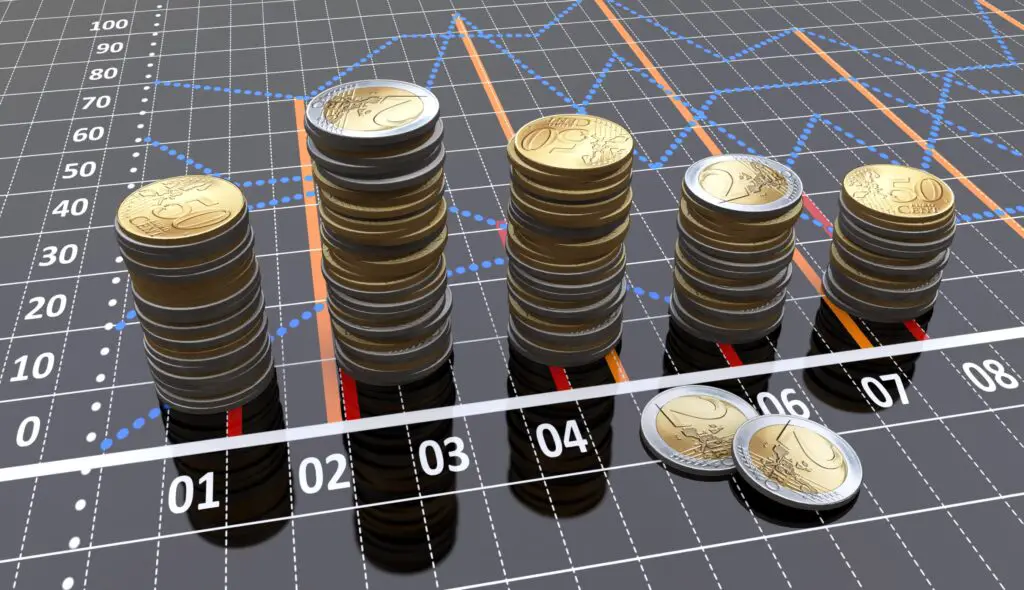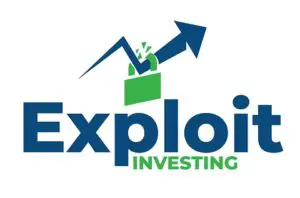
Dividends are exciting, I mean who wouldn’t like to put their money somewhere only to have it pay you regularly. Index funds are a great way for new investors to get a piece of these dividends without much investment knowledge. But, are you really getting the most from your dividends within an index fund?
Index funds pay dividends based on their underlying assets. Once all dividends from underlying assets have been collected in a quarter, they are paid out after subtracting index fees. Dividend funds are held as cash until the payout date occurs.
Index funds are passively managed and track the index perfectly. However, inefficiency in timing may cause a decrease in returns. This decrease is miniscule and averages out in the long term.
If your interested in learning more about index funds and dividends, everything you need to know is covered below.
The Truth About Stock Dividends Between Collection and Payout
Stocks pay dividends at different intervals. This always made me wonder what happens to those dividends in funds between the time they were collected and paid out.
Dividends between the time of collection and disbursement are held in non interest bearing accounts. Sometimes this can be as long as one month later.
Depending on the quantity of the dividend and the interest rate, this can lead to a loss of compounding potential that grows along with the interest rate.
How to Avoid the Lag Period between Dividends and Payouts
The only way to truly avoid the lag time between when a company pays a dividend and when the index fund disperses the dividend is to buy the company’s contained within the index fund.
This can be a lot of work considering index funds hold large quantities of stocks, often hundreds. This is where a tradeoff occurs between time and money. Its often better to hold the index fund rather than to invest in so many companies.
How Dividend Payouts Occur within Index Funds
Just like normal stocks dividends are paid according to three important dates:
- Ex-Dividend date
- Record date
- Payment date
The record date occurs the day after the ex-dividend date. The record date determines who gets the dividend on the payment date.
Depending on the index fund dividend payouts typically occur 4 times a year. Bond and REIT funds can payout as many as 12 times per year.
End of Year Dividend Disbursement
Index funds because of their passive investing nature usually have very small end of the year disbursements. Although depending on how the index has changed throughout the year they will undoubtedly have some.
End of the year dividend disbursements can either increase or decrease the amount of dividends you receive during Christmas. This is because the funds buy and sell select stocks in the index that will create capital gains that are not associated with the dividends of the underlying assets.
From the index funds I’ve owned, I noticed two separate payouts at year end.
- One that includes the dividends.
- Another that disperses the capital gains.
This is likely done separately because of the tax implications. Dividends are taxed differently than capital gains. Capital gains can either be long term or short term and dividends are taxes at the income tax rate.
How to Reinvest Dividends into an Index Fund
Fees are the bane of investors. They reduce your compounding rates and can cause you to lose thousands if not millions of dollars over a long period of time.
This is why automatic index fund reinvesting was created. It would allow you to buy shares in the index fund without paying fees or even having to buy the entire share. This is where fractional shares come into the picture.
Instead of owning a full share of the index you could own a small percentage of it denominated in decimals.
In order to reinvest dividends all you need to do for most brokers is go into settings and select automatically reinvest dividends.
This allows you to take a set it and forget it approach to investing in general.
Types of Dividend Paying Index Funds
As index funds have become more popular over the years new indexes have been created. As a result many new index funds have been started to track these new indexes.
While there are indexes that track large companies and smaller ones these can be classified as stock index funds. Different categories of index funds may include:
- Bond indexes
- REIT indexes
- Sector indexes
These indexes pay dividends at different intervals than other indexes typically do. Bond and REIT indexes usually payout once a month because that is how often they collect from their underlying assets.
Three Examples of High Yield Index Funds
If you are interested in investing in high yield dividend ETFs here are three examples that I have invested before.
- Vanguard Dividend Appreciation (VIG): This ETF tracks dividend paying stocks that have been increasing their dividends on a regular basis.
- SPDR S&P Dividend ETF (SDY): This ETF tracks high yielding dividend stocks that have a long track record of paying dividends.
- Vanguard Real Estate ETF (VNQ): This dividend tracks real estate stocks or REITS. It pays out monthly instead of quarterly.
While I enjoyed collecting passive income ETFs it was ultimately not enough for me. I began to seek out individual stock investing as it was more interesting to try and pick winners and losers.
Fees and dividend distribution timing were another reason I chose to invest in individual stocks.
Getting Rich from Dividend Paying Index Funds
Ultimately for individuals will small sums of capital dividend paying index funds will not make you a millionaire over night. You may be better of investing in higher yielding investments. These may include:
- Investing in a business you create.
- Investing in your education.
- Niche investing where you have an advantage over others.
Once you’ve decided how you will make your initial cash, whether it be a day job or a business saving as much as you can and investing in index funds will grow your capital considerably faster.
Eventually the returns you achieve from index investing will outpace the amount of money you can make by selling your time.
